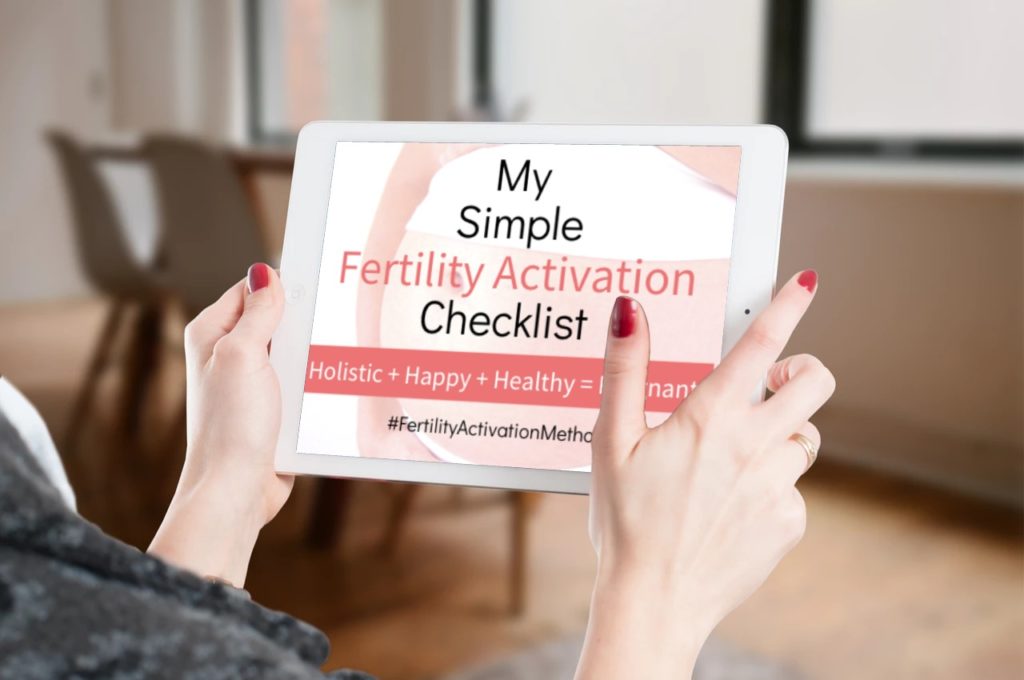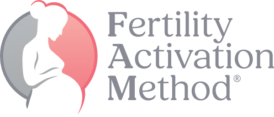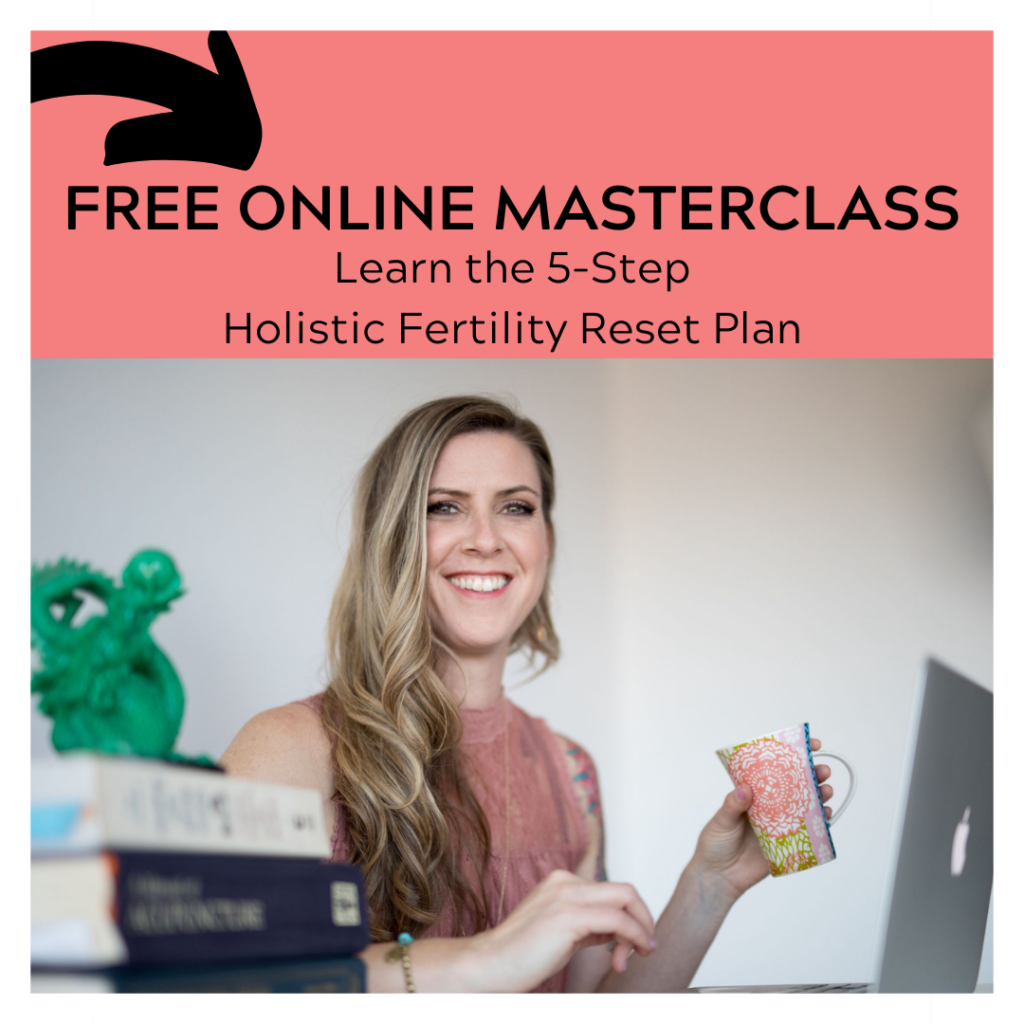
WANNA GRAB MY
FREE & SIMPLE
FERTILITY ACTIVATION CHECKLIST?
Follow these simple steps & get pregnant the easier, healthier & more affordable way!

WANNA GRAB MY FREE & SIMPLE FERTILITY ACTIVATION CHECKLIST?
Follow these simple steps & get pregnant the easier, healthier & more affordable way!
Getting Pregnant with Hypothyroidism and Infertility Issues + a Fertility Pressure Point for a Healthy Thyroid
The number of women with hypothyroidism and infertility issues has sadly reached epidemic proportions.
If you’ve been diagnosed with hypothyroidism and you’re trying to conceive, you MUST support your thyroid, even if you’re taking medication. Especially if you want to get pregnant faster and/or avoid miscarriage.
It’s important to know that once you have hypothyroidism, that indicates a larger chronic systemic issue at hand.
It usually results from a combination of stress, digestive issues, hormonal imbalance and/or toxic overload.
You must support your ENTIRE system and balance your hormones throughout your the duration of your cycle every single month.
In this video, I teach you how to stimulate a fertility pressure point to balance your thyroid so you can get pregnant even if you’ve been diagnosed with hypothyroidism and infertility issues.
In this video I’m going to teach you a really awesome thyroid fertility pressure point that you can stimulate on yourself; it’s on your hand. I’m going to teach you that towards the end of this video. I’m also going to teach you some really important information about your thyroid medication, and something that you might want to discuss with your doctor that you probably don’t know.
First of all, let’s begin with going over hypothyroidism and some misconceptions about hypothyroidism. First of all, almost all cases of hypothyroidism in the United States or any developed country like the U.K., Canada, Australia, are due to an autoimmune condition rather than an iodine deficiency. Iodine deficiency is more common in developing countries; that’s when there’s a large goiter on the neck. But in developed countries we don’t really have iodine deficiency.
The other thing that causes hypothyroidism is an autoimmune condition. That means the body is attacking the thyroid. You can have autoimmune hypothyroidism even if you have not tested positive for thyroid antibodies. Some doctors don’t bother testing for thyroid antibodies, so you may have it and it may not be diagnosed; or you may have been tested but it came back negative for antibodies. Your doctor said, “Oh, it’s not autoimmune,” but the thing is, once you’ve tested positive for antibodies, you’re already at a more advanced stage of the autoimmune condition.
When you have an autoimmune condition like hypothyroidism, it’s important to understand that this is an indication of a larger chronic issue at hand. By the time you’ve actually been diagnosed with hypothyroidism, especially if you do have those antibodies present, then your body has been under stress for quite a long time. The thyroid is just really stressed out and strained by the time it’s actually hypothyroidism. What usually leads to this is a combination of stress, digestive issues, hormonal imbalances, toxic overload in the system.
You really want to support your entire system, your whole body, your whole health, your mental health, your emotional health, your whole wellbeing. You want to make sure that you’re balancing your hormones throughout the duration of your cycle every single month. It’s not just about the thyroid, but basically the health of your whole body by the time your thyroid is that stressed out.
Now, infertility symptoms associated with hypothyroidism can include menstrual cycle abnormalities; you might have heavier flow or your cycles might be less frequent. You might have a low basal body temperature; that means you might have some low progesterone levels. You might have trouble getting pregnant, you might be more likely to miscarriage. Women with hypothyroidism are on a higher risk for miscarriage. You might have trouble ovulating. Oftentimes hypothyroidism and Polycystic Ovary Syndrome go hand-in-hand because they both involve abnormal hormonal levels. It’s really important to balance your hormones. This will lead to significantly improved chances of obviously getting pregnant, by balancing those hormones.
Before I teach you the thyroid fertility pressure point, I just want to emphasize that it’s never as easy and simple as just pushing one fertility point, or, of course just taking a drug to fix everything. By the time your thyroid is struggling, as I mentioned earlier, you do need to make sure you’re giving your thyroid extra support; you do need to make sure that you’re taking thyroid medication. You can do this fertility pressure point for the thyroid to help, but you also must, must, must support your hormones through your entire cycle and support the wellness of your entire body; all the systems in your body to support your thyroid.
If you’re managing hypothyroidism with medication, it’s important to understand too that the better you support your thyroid and your cycle and your whole body and your hormone levels, then the less meds you’re going to need; and hopefully, possibly you’ll be able to eventually come off of your meds at some point. Also, the more stabilized your levels will be on the medication. You can take medications, but your thyroid levels can still go up and down, and up and down, and then your doctor’s going to have to constantly adjust your medication. If you’re not having frequent doctor appointments, you might not even realize that your dosages need to be adjusted. You really want to stabilize those levels and make sure that you’re supporting your thyroid.
Let’s go ahead and begin with the thyroid pressure point demonstration. It’s a pretty easy point here. It’s on the base of your thumb; this is on your left side as well as your right side. You’re just going to support your wrist with your other hand. Whichever side you begin on is fine; you can begin on your right side. You’re just going to support your wrist with your hand. You can hold it on your lap so it’s nice and relaxed. I’m just holding it up here for demonstration sake.
You’ll use your thumb to push into this whole area at the base of your thumb. You can give a pretty firm pressure there. If it’s particularly tender in any area, then you really want to give a little more attention to that area. Just pushing down and upward, I find that’s the easiest way to really get in there and stimulate this area. I recommend pushing this point for about one minute. You can do this for one to three times a day.
You can do this when you’re just in line at the grocery store or stopped at a stoplight or watching TV or just hanging out and chit-chatting with your friends or family; any time. It’s really simple. Or even when you’re just taking a little break at the computer. Also, if it’s too sore to use your thumb or another finger to stimulate this point, you can use a pencil eraser tip or anything that’s got a soft dull point to get in there and massage the area. Of course you would just do the same thing on the other hand, the base of the thumb. You can cover this whole area with this special concentration on any part that feels particularly tender. All right. Pretty simple, right? That will help to support your thyroid. Again, for about one minute, one to three times a day.
Now, I want to give you a few more tips just on some dietary recommendations and also some information about taking thyroid medication. Also, if you’re doing any kind of thyroid supplement, like if you’re taking any kind of nutritional supplement to support your thyroid, then it’s important to note that you should not take an iodine supplement if you have been diagnosed with Hashimoto’s autoimmune hypothyroidism. This is because it will require your thyroid to work even harder to process the iodine and potentially can cause more damage and inflammation.
Initially, when you start taking the iodine supplementation, you might feel a little burst of energy and you might feel a little bit better. But then, as your thyroid has to continue processing that iodine and it puts some wear and tear on the thyroid, then you might start to feel worse again. That’s really important because a lot of people are not aware of that, and a lot of practitioners are not necessarily aware of that. They think hypothyroidism, take an iodine supplement. I just want to make sure that you know that.
Also, I want to make sure that you know if you do have hypothyroidism, then I would strongly recommend that you eliminate these top inflammatory food triggers, because this is an inflammatory condition. Gluten, soy, corn, dairy, caffeine, alcohol, sugar. Gluten, soy, corn, dairy, caffeine, alcohol, sugar. These can all trigger more inflammation. If you eliminate these or cut down on them significantly, you’re going to be doing so much to support your thyroid.
This can make such a difference for thyroid health because if you’re having trouble getting pregnant, it’s really just not as simple as, ‘Well, I just take this thyroid medication so that my thyroid levels are in the right bracket and it should be no problem.’ No. It’s a systemic issue. Thyroid medication is really a bandaid solution. It’s a necessary bandaid solution, but it does not mean that you’re automatically going to have no problem getting pregnant simply by taking a thyroid medication. Not if you’re still having this inflammation.
I recommend cutting out those inflammatory triggers, and I would also suggest you eliminate foods from the nightshade category. You can google nightshades, what those are on your own. I would also recommend that you follow an autoimmune diet. You can also google that on your own because these will all be recommendations for eliminating things that are very common inflammation triggers.
Now, when it comes to your thyroid medication, ideally you should take a non synthetic bioidentical form of thyroid medication with a combination of both T4 at 80% and T3 at 20% ratio. So T4 80, T3 20. This is a ratio that closely mimics the biological ratio in your body when it makes T4 and T3. Bioidentical brands include Westhroid, Nature-Throid, and Armour. Most doctors are not prescribing these brands, so it is something that you probably want to discuss with your doctor.
It’s also important to know that thyroid medication should be taken 30 to 60 minutes or longer before you take any nutritional supplements or other medications. I do recommend that you actually get your thyroid prescription from a naturopath, and even get your thyroid tested by a naturopath. At least here in the United States, naturopaths are able to prescribe thyroid medication, and they usually prescribe a customized prescription of the T4 and T3 based on what your needs are. They do use brands that are non-synthetic bioidentical form of thyroid medication. That’s what I would do if I had hypothyroidism.
If you want to know more about how you can support your whole body and supporting your thyroid so you can get pregnant even if you’ve been diagnosed with hypothyroidism, then I would like to invite you to my free Master Class.
I will go over my four-step process for getting pregnant easier, faster, healthier way, more affordable way, and how to support your body and your cycle and balance your hormones so that you’re able to get pregnant; like I said, even if you’ve been diagnosed with hypothyroidism. I really hope to see you at my Master Class.
P.S. Wanna learn more? Watch my FREE 5-Step Fertility Reset Masterclass by going HERE. My proven baby-making strategy that works no matter what you’ve tried before, how old you are or how messed up you think your fertility is (I’ve seen it all!)!


